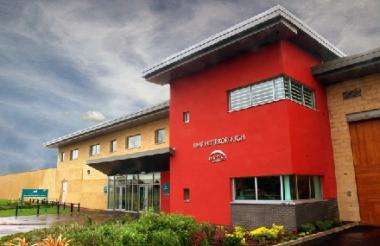Investors in the Peterborough social impact bond will be repaid in full with a 3 per cent per annum return, according to an announcement today.
Social Finance, the organisation which created the Peterborough social impact bond – the first in the world – said the SIB had succeeded in reducing reoffending by 9 per cent, against a Ministry of Justice target of 7.5 per cent.
A social impact bond is a type of payment-by-results contract where a charity or other social purpose organisation agrees to deliver a given outcome. Unlike a standard PbR contract, the funding to deliver the project comes from third party investors. If the project hits agreed targets, the investors and charity make money. If it fails, the investors are the ones who lose out.
The SIB model has been widely adopted, with 89 examples in 19 countries worth over £300m. It has been praised because it provides social bodies with freedom to innovate, allows the development of long-term solutions and early intervention, and transfers risk away from charities and public commissioners.
But it remains controversial because it is seen as complex, bureaucratic and expensive. SIBs have also struggled to create sufficiently accurate measures to assess whether social issues are being addressed, and are sometimes seen as commodifying social problems.
The Peterborough SIB was intended to invest £5m in reducing reoffending in three tranches of 1,000 prisoners who were leaving Peterborough Prison after serving sentences of less than 12 months. It was intended to operate over seven years.
However the SIB was abandoned after the second tranche, because of the launch of a new government programme, Transforming Rehabilitation, which involved PbR contracts to reduce reoffending among all short-term prisoners, and removed the ability to judge the SIB against a control group.
Transforming Rehabilitation, which was based partly on the success of the SIB, has since been heavily criticised for failing to follow its principles, and reverting to the use of large private providers.
David Hutchison, chief executive of Social Finance, said: “The Peterborough Social Impact Bond captured people’s imagination with the simple premise that it is possible to invest in interventions to tackle difficult social issues. The results today reflect the hard work, commitment and tenacity of all those involved, working with this group of offenders to help them rebuild their lives. I am immensely grateful to all our partners for their commitment over the past seven years. We have learned that impact investment can drive real change and harness communities and action to rethink how we resolve the challenges our societies face.”
The SIB was delivered by the One Service, a partnership administered by Social Finance.
Organisations involved in the delivery included:
- St Giles Trust
- Ormiston Families
- Sova
- MIND
- TTG Training
- YMCA
- John Laing Training
Investors in the SIB include:
- Barrow Cadbury Trust
- The CowPat Trust
- Esmée Fairbairn Foundation
- Friends Provident Foundation
- Golden Bottle Trust
- The Henry Smith Charity
- The Hintze Family Charitable Foundation
- J Paul Getty Jr Charitable Trust
- Johansson Family Foundation
- K L Felicitas Foundation
- LankellyChase Foundation
- Monument Trust
- Panahpur
- Paul Hamlyn Foundation
- R&S Cohen Foundation
- Rockefeller Foundation and the Tudor Trust
Related articles












